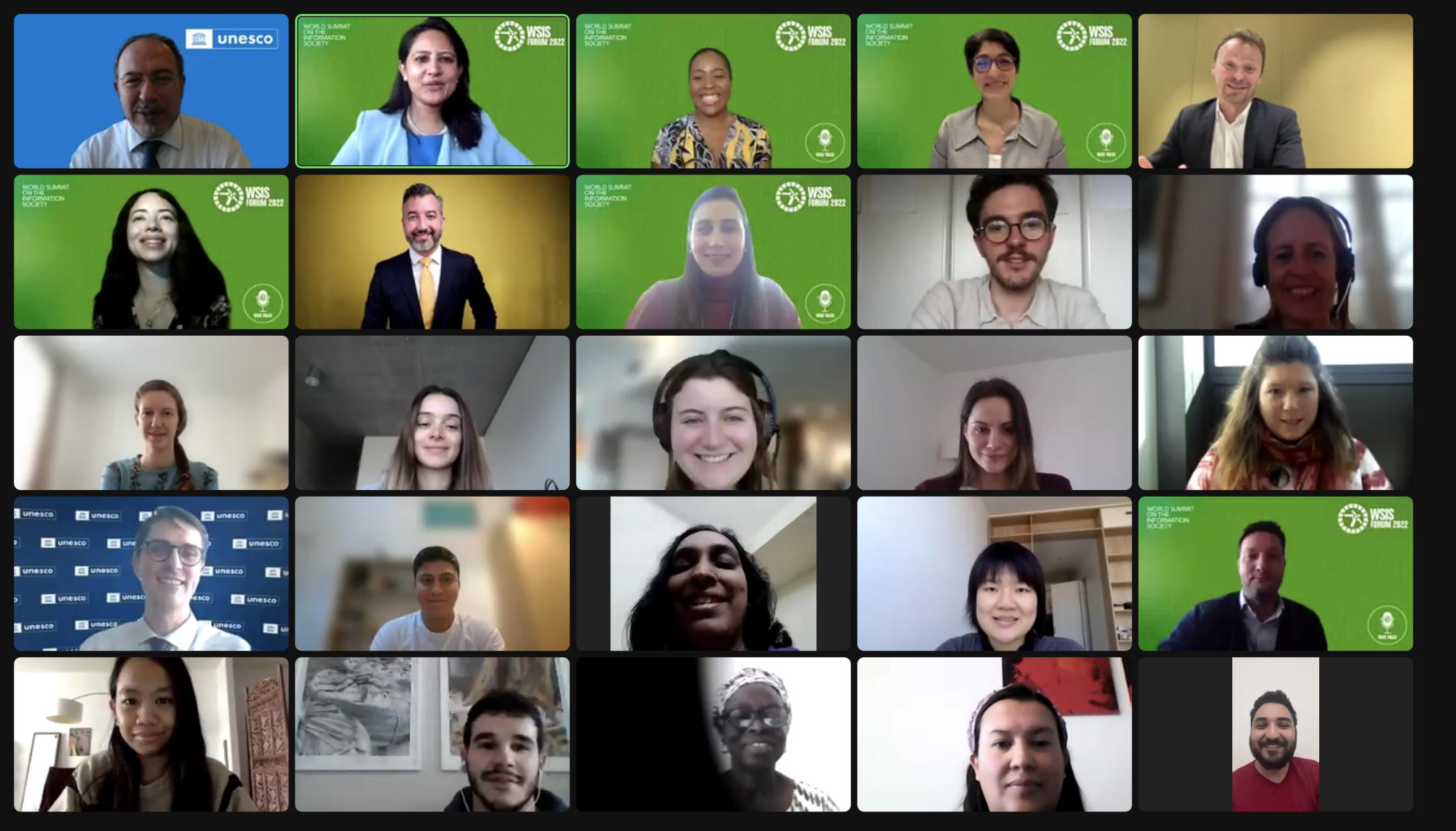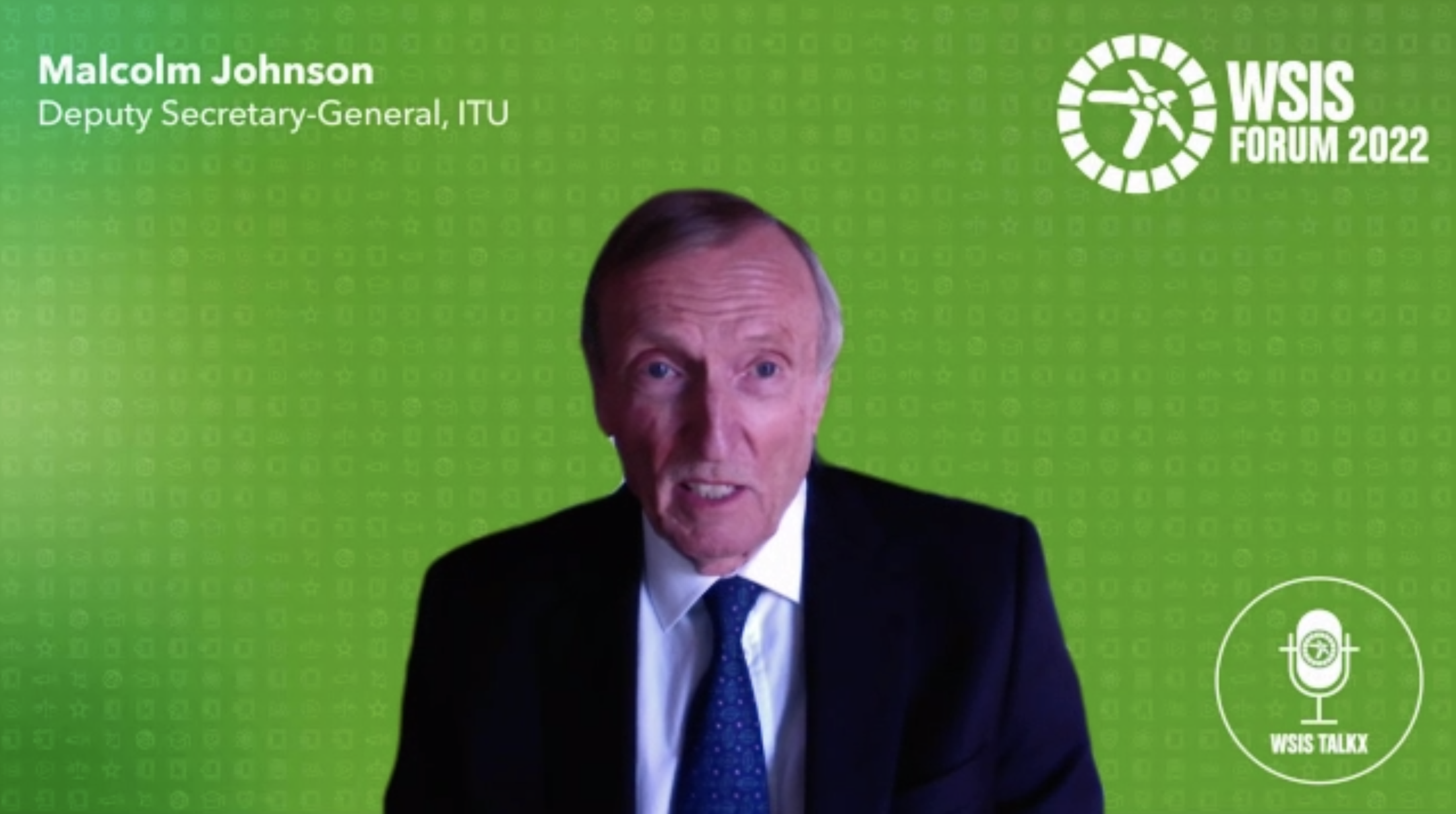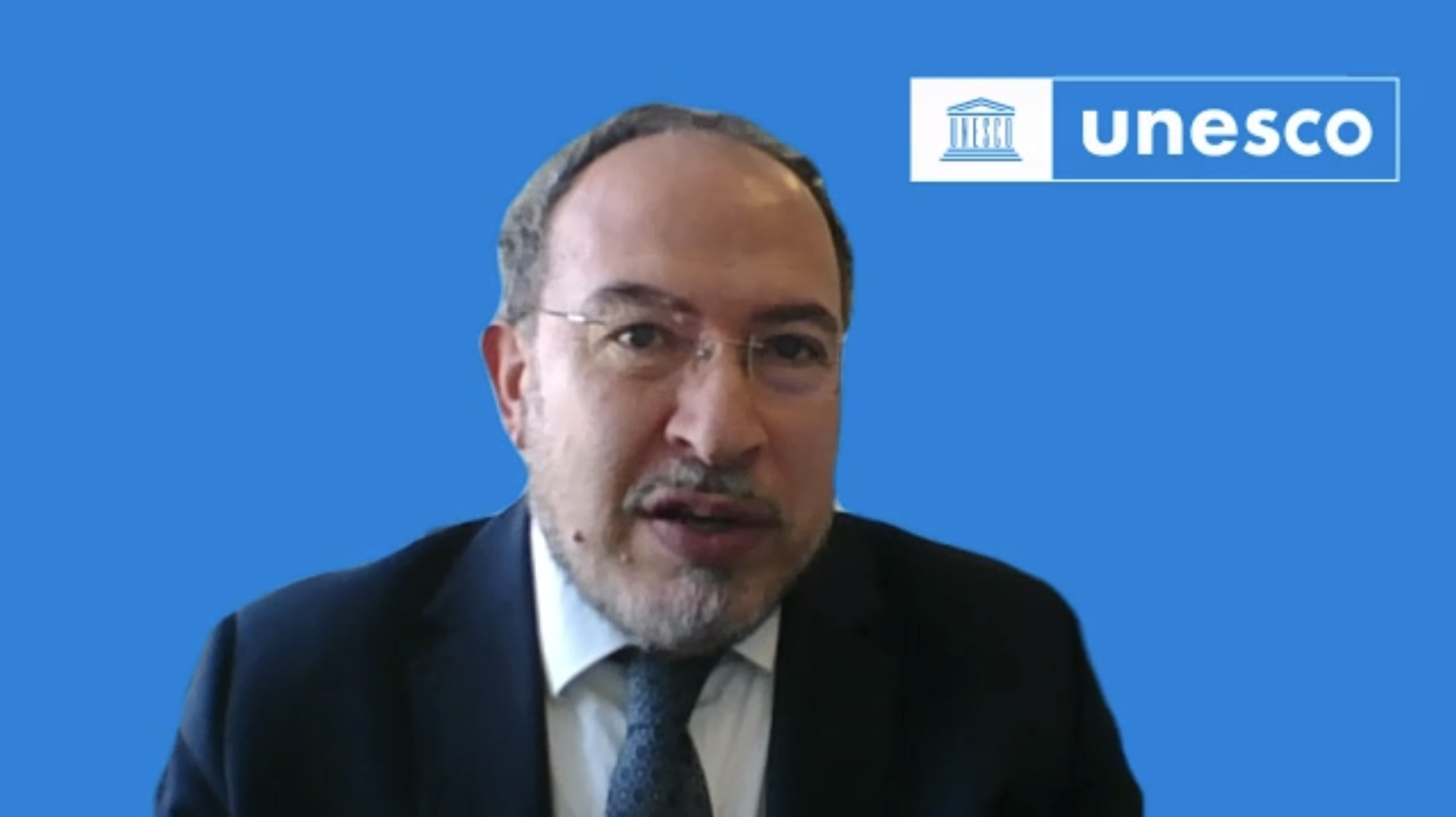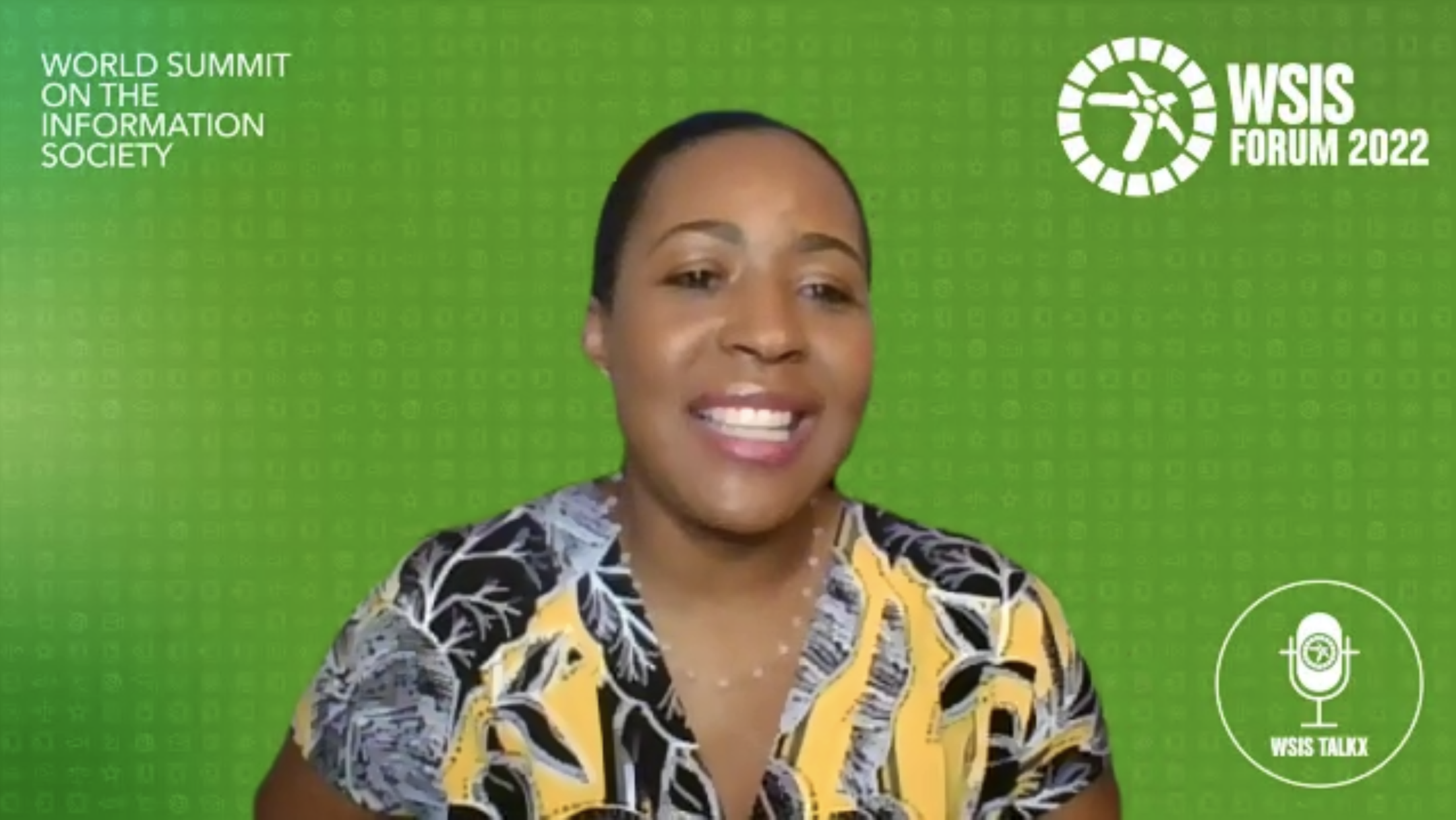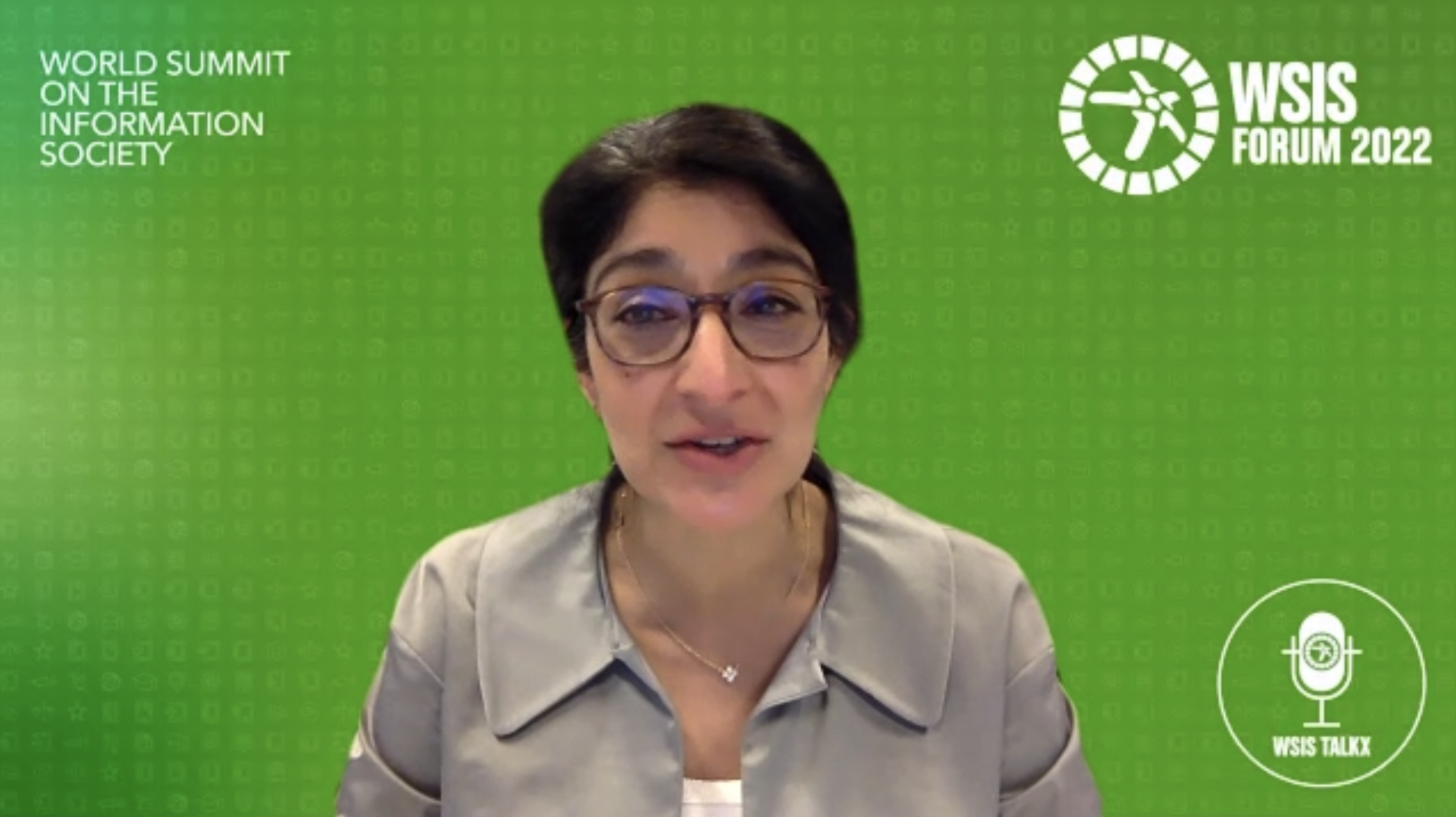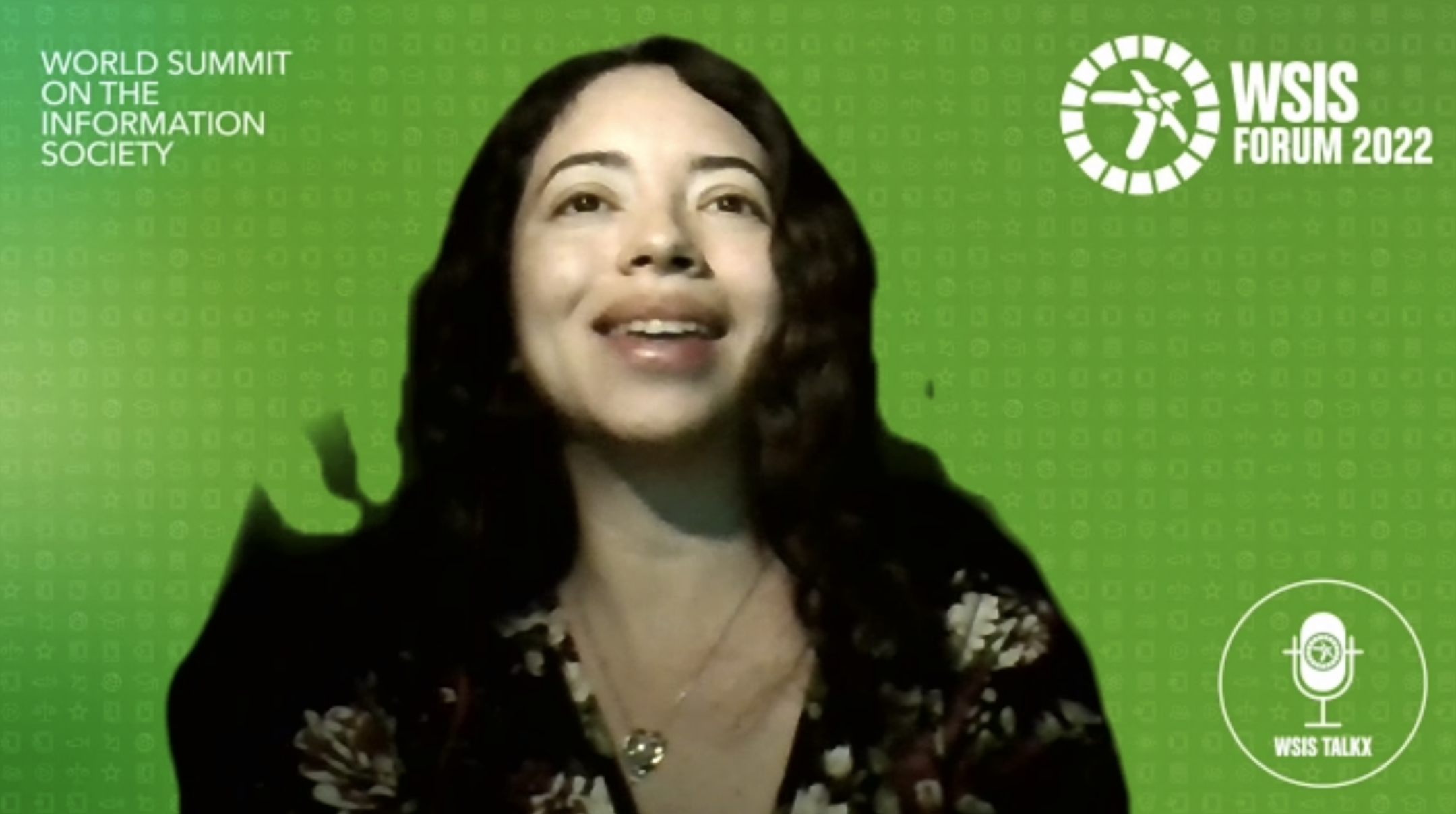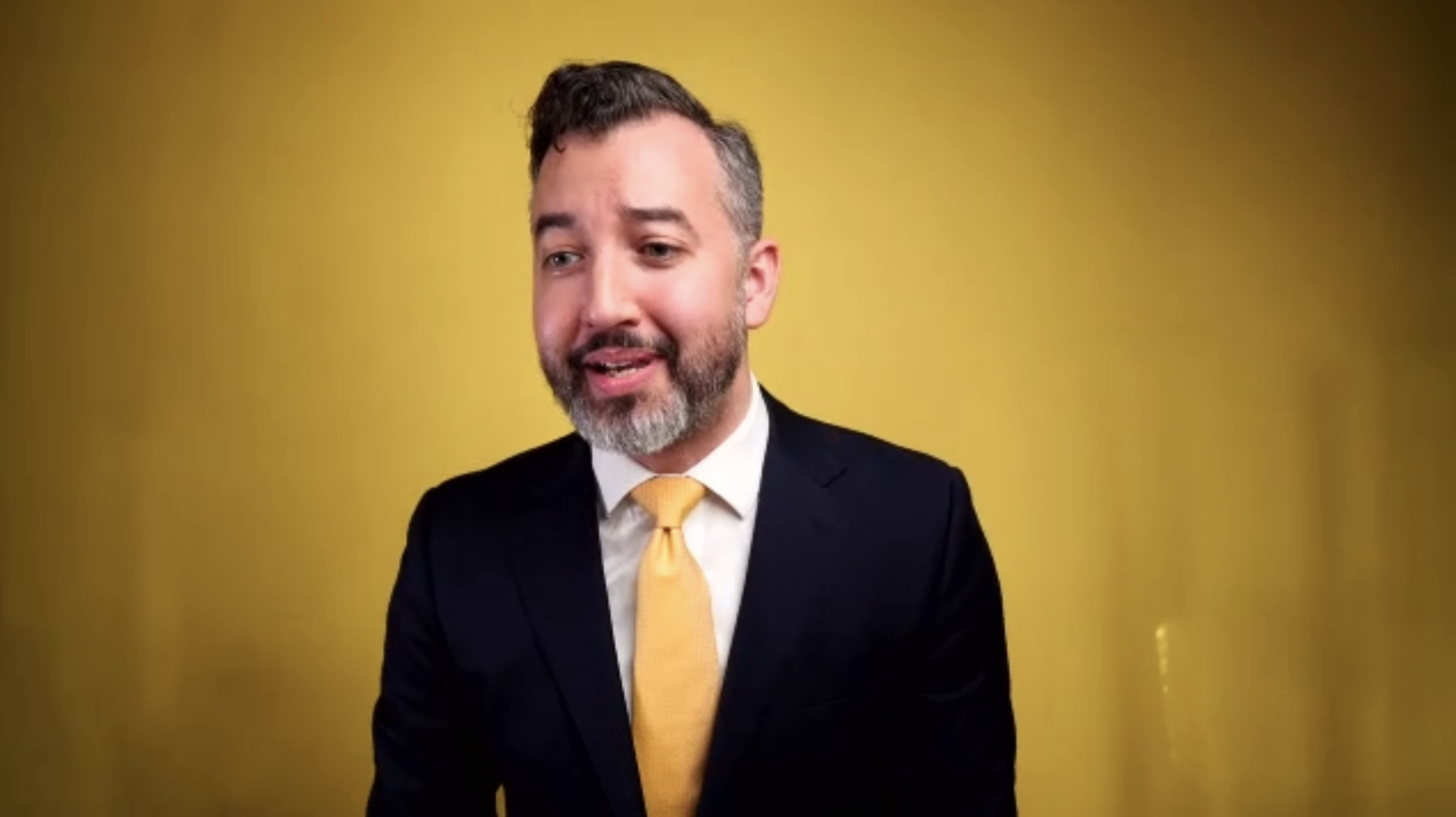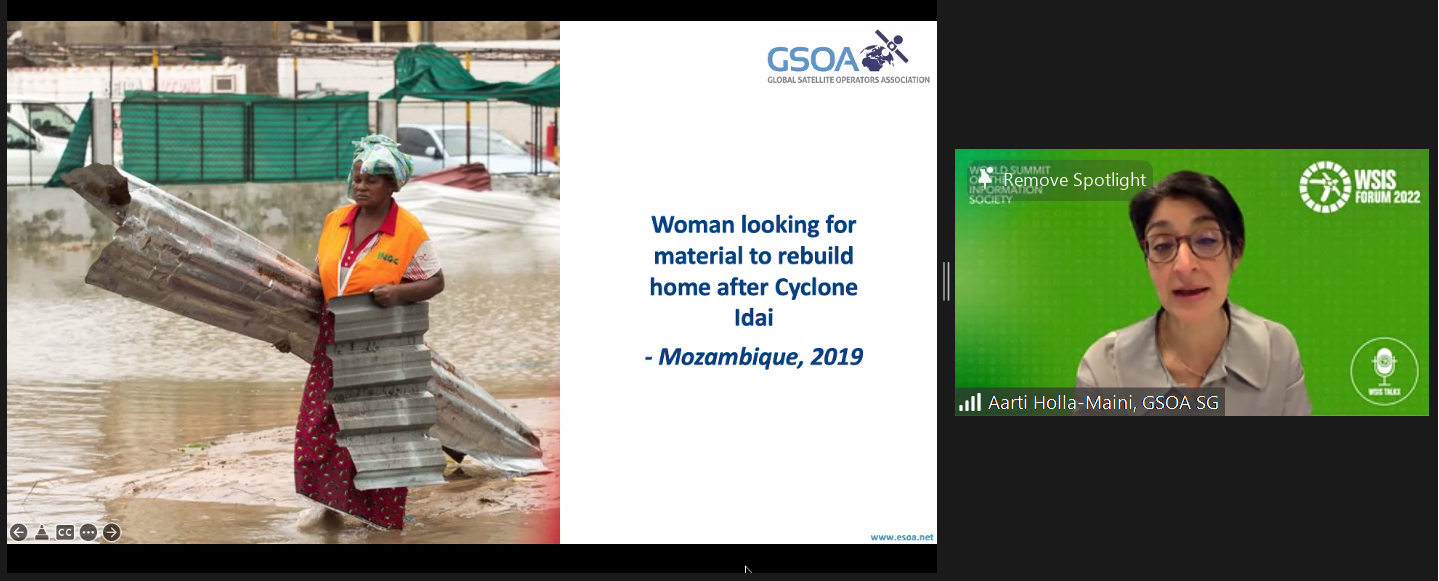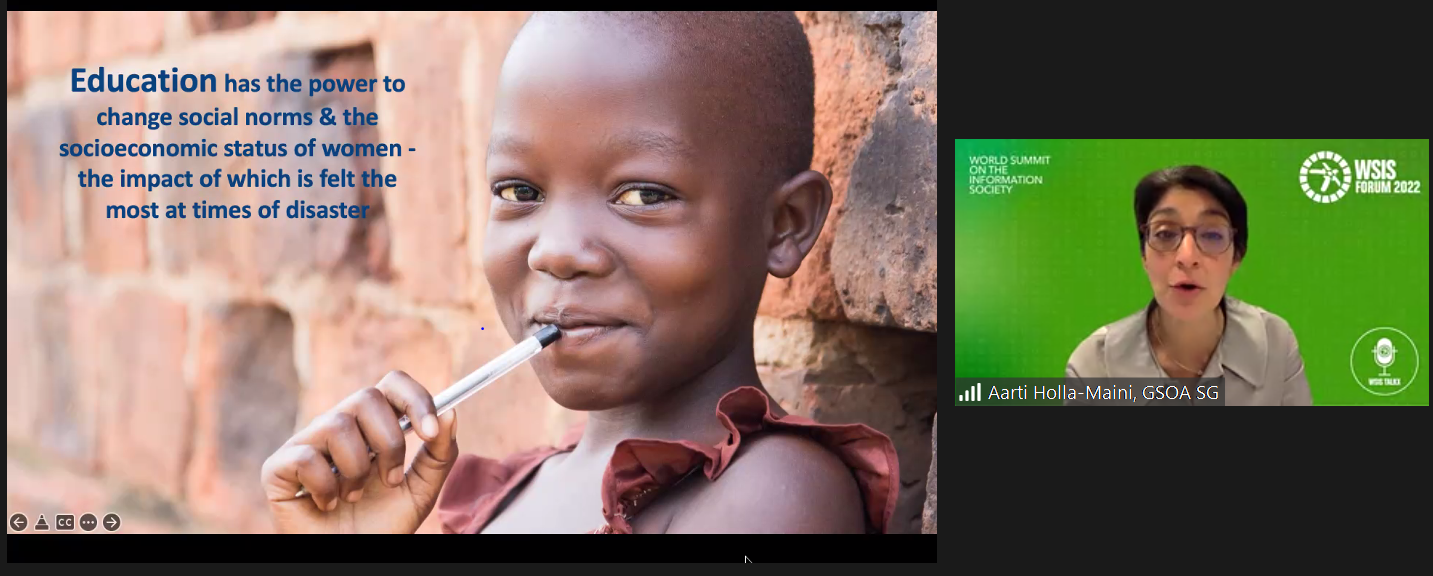WSIS TalkX: International Women's Day
International Telecommunication Union (ITU)
Session 125
Women’s contribution to sustainable development has been significant and is celebrated around the world. They bring about innovative ideas and solutions, add diversity to decision-making and pave way for improvement in all areas. Recent report of the UN Secretary-General on the role of women in public life highlights that women’s equal participation in leadership positions and elimination of violence against women are essential to achieve Sustainable Development Goals.[1]
Despite the challenges created by gender inequality, women keep demonstrating resilience in the face of common difficulties. One example would be their efficient contribution to tackling the challenges created by the COVID-19 pandemic. In addition, women can introduce fresh and innovative perspectives to dealing with one of the greatest threats to people and environment in the 21st century – Climate Change.
This year, the International Women’s Day is celebrated under the theme of “Gender equality today for a sustainable tomorrow”. Women are increasingly vulnerable to impacts of climate change as they are recognized to constitute the majority of the world’s low-income population and are more dependent on natural resources.[2] Without solving the global climate crisis there is no economic, social, and environmental development, and gender equal participation in addressing these issues is essential to making progress towards SDGs.
This session will feature an interactive panel of high-level stakeholders to highlight the role of women in ensuring sustainable tomorrow.
We, at the WSIS Forum 2022, are dedicated to the promotion of 50/50 gender balance participation and women empowerment. Our Repository of Women in Tech brings together individuals interested in achieving gender equality in and with the help of ICTs, identifies women speakers, creates space for networking, mentorship sessions and documentation of best practices.
This session is organised in the framework of WSIS TalkX and is aligned with WSIS Action Lines and the UN Sustainable Development Goals.
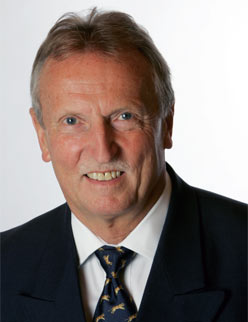
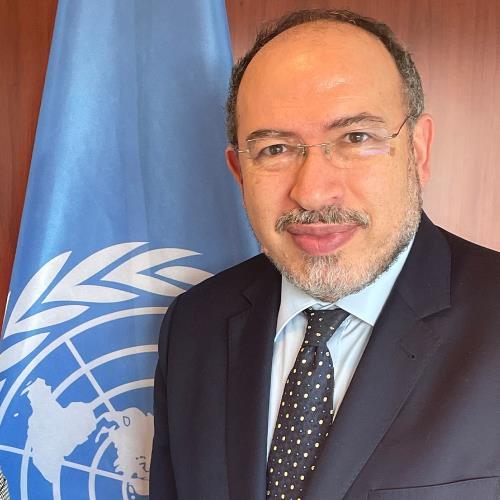
Dr. Tawfik Jelassi was appointed UNESCO Assistant Director-General for Communication and Information on 1st July 2021. In this position, he is responsible for the Organization’s programmes on building inclusive knowledge societies, leading digital transformation, strategizing the role of ICT in education, and fostering freedom of expression.
Dr. Jelassi holds a Ph.D. doctorate in information systems from New York University (USA) and postgraduate diplomas from the University of Paris Dauphine (France).
Dr. Jelassi has extensive experience in higher education, scientific research, and information & communication technologies. He held academic, corporate and government leadership positions in Europe, the USA, and Tunisia.
Among others, he was Programme Director and Professor of Strategy and Technology Management at IMD Business School in Lausanne (Switzerland, 2015 – June 2021). Prior to that, he served as Minister of Higher education, Scientific Research and Information & Communication Technologies in the democratic transition government of Tunisia (2014 – 2015). Prior appointments included being Chairman of the Board of Directors of Ooredoo Telecom in Tunisia, Dean at Ecole Nationale des Ponts et Chaussées (Paris), and Professor & Chairman of the Technology Management Department at INSEAD (Fontainebleau).
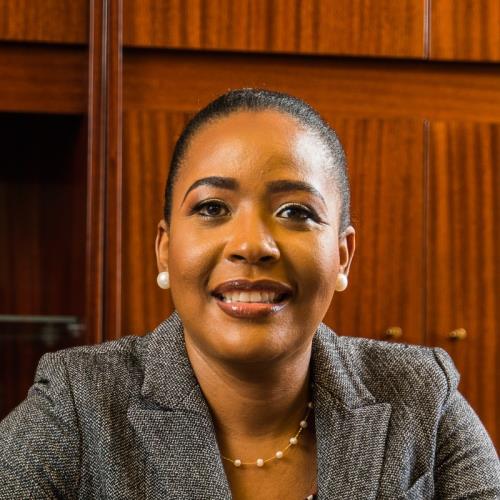
Valrie Grant is a serial entrepreneur and Strategy consultant. She is the Founder and Chairwoman of GeoTechVision, a knowledge services company built into an international reliable and quality provider of a range of customized services and data-driven solutions to governments, NGOs and corporate entities. Valrie is a lifelong learner, who is passionate about Technology and Entrepreneurship and relishes every opportunity to mentor women entrepreneurs and young people. Her latest initiative is EduTechAid which seeks to respond to the inequality of access to digital tools in education and empower youths. She has served on several national, regional and international Boards and Committees such as the World Geospatial Industry Council (WGIC) and the United Nations Global Geospatial Information Management (UN-GGIM): Americas Private Sector Network. Valrie is a 2020 WE Empower UN Sustainability Development Goals Challenge Awardee. Most recently she authored the book “ Every Day is Day One : Maintaining the Startup Culture and Mindset”.
She holds a BSc. in Geology from the University of West Indies and a MSc. in Geographic Information Systems (GIS) and the Environment from the Manchester Metropolitan University, and an MBA from Florida Institute of Technology.
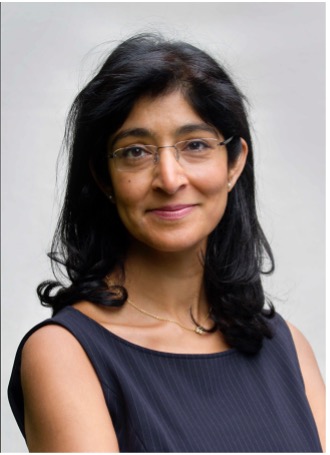
Aarti Holla-Maini has been Secretary General of the GSOA (formerly ESOA) since 2004. She is a Member of the World Economic Forum’s Global Future Council on Space, the WEF Global 5G Coalition Network and the WEF Essential Digital Infrastructure & Services Network.
Under Aarti’s leadership, GSOA & its member CEOs lead the effort to showcase the benefits of satellite communications for a more inclusive and secure society - vital to bridging the world’s digital divide, achieving the UN’s Sustainable Development Goals and realizing the 5G ecosystem.
Since joining the association, Aarti has led the expansion of GSOA from a European association to one that represents the interests of 28 global and regional satellite operators. She reports directly to their Chief Executives.
Aarti has 25 years' experience in the aerospace industry, starting at Daimler-Benz Aerospace/EADS (now Airbus) in Germany. In 2000, she moved to Brussels, representing Airbus interests in the European satellite navigation program: Galileo.
Aarti holds a Masters of Business Administration from HEC, France & Stern Business School, NYC, USA. She qualified as Solicitor of the Supreme Court in the UK in 1995, holding a 2:1 graded LLB Hons Law with German Law degree from King's College, University of London & the University of Passau, Germany. She is also an alumnus of the International Space University. Aarti is of British-Indian origin and holds British and Belgian nationalities. She lives in Brussels, has 3 children and speaks 5 languages.
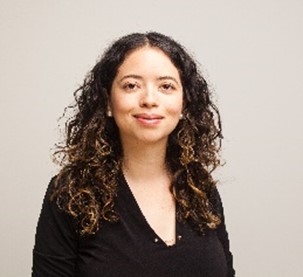
Dr. Susana Arrechea works at New Sun Road, a Californian start-up incubated at UC Berkeley, where she develops digital community centers with solar electrification and connectivity for rural Guatemala. She is the Project Director of the Digital Community Centers Stellar Ixq-Saq´e, funded by the US Agency for International Development, Microsoft, and DAI. She earned an undergraduate in chemical engineering from the University of San Carlos of Guatemala (USAC).
She received a scholarship from Fundación Carolina to study a Master of Science and a Ph.D. degree in Nanoscience and Nanotechnology from the Universidad de Castilla-La Mancha, Spain.
In 2015, she was a visiting researcher at UC Berkeley, under the Fulbright NEXUS program. From 2016–2020, she was a Research Professor at USAC. In 2017, she won the Galardón de Guatemaltecos Ilustres award and the TWAS Young Scientists Award in Guatemala. In 2020, she won the OWSD-Elsevier Foundation Award for Early-Career Women Scientists in the Developing World representing Latin America.
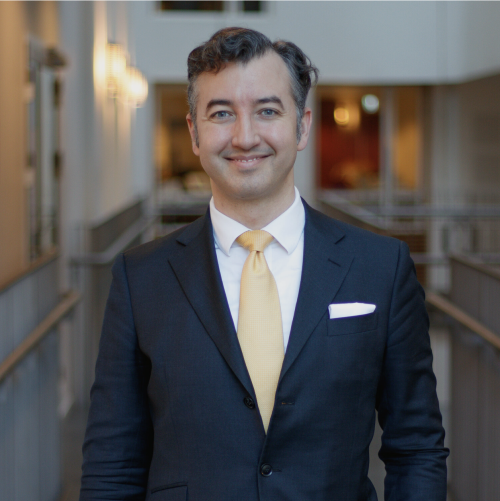
Anthony’s work focuses on technology policy and practice. He is an internationally recognized expert in universal design of information and communication technology (ICT). He leads several large-scale research and innovation projects based in over 27 countries.
Anthony is an Associate Professor of Universal Design of ICT at the Department of Computer Science at Oslo Metropolitan University (OsloMet). He maintains several international appointments including at the Harvard Law School Project on Disability at Harvard Law School, the Burton Blatt Institute at Syracuse University, the Department of Science and Informatics at the University of Eduardo Mondlane, and the Department of Education at Roma Tre University.
He works with the United Nations (UN) International Telecommunications Union (ITU) as the Vice Rapporteur for the subcommittee on ICT Accessibility and Research Coalition lead for the EQUALS Global Network. He is founder and Chair of the Board for the Global Universal Design Commission Europe AS, and Ser Innovation AS. He is a member of the board for Mfano Design Lab, the Global Universal Design Commission, Inclusive-IT, and Humans for Humans. He has been a member of the Association for Computing Machinery's (ACM) Task Force on Diversity and Inclusion and was awarded a Marie Curie Fellowship as part of the DREAM research network.
Since 2014, Anthony has acted as a principal investigator for research and innovation projects with budgets totaling over 11 million EUR. He has authored over 47 peer-reviewed academic publications in leading international journals. Anthony has taught over 3,000 students. He has mentored over 23 startups, half of which have been led by women.
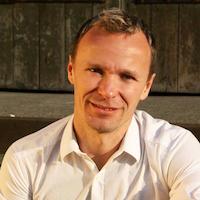
Dr. Morten Meyerhoff Nielsen, a EGOV Advisors at the United Nations University Operating Unit on Policy Drive Electronic Governance (UNU-EGOV). Morten’s core expertise matches the objective of the project.
For the last 17 years he has worked with digital transformation of the public sector including ICT facilitated administrative burden reduction, public service delivery, online usability and personalisation, public service delivery ecosystems and one-stop-portal design and usability tests. Other work includes development and evaluation of key strategies for eGovernment and digital transformation (Armenia, Albania, Faroe Islands, Dubai, Georgia, Indonesia, Latvia, Qatar, MENA region) and institutional frameworks and performance management (Armenia, Albania, Faroe Islands, Latvia, Oman, Uganda). Morten has as well expertise in data reuse, eID management and PKI infrastructure, the inclusivity and personalisation of eServices (Armenia, Denmark, Faroe Islands, Georgia, Latvia, US, Saudi Arabia).
In his research, he has focused on the analysis of global leaders (incl. Australia, Denmark, Estonia, South Korea, UK) approach to governance, cooperation, and compliance and applied this to his work with clients and partners (Armenia, Georgia, Oman, Saudi Arabia, UAE, Uganda, USA). Morten regularly conducts stakeholder engagement and consultation activities as part of our ongoing activities and projects. In addition, he regularly delivers executive and university course training on eGovernment issues, the digital transformation of service production and delivery, disruptive technologies, digital inclusion, webaccessibility, innovation, smart nations, cities and communities, engagement, and social media-related issues in Europe, the Middle East, and beyond.
Morten holds a degree in Economics and Political Science from South Africa and the UK and a Phd in Public Administration from Estonia in which he combines theory and practice in an analysis of technology-enabled public sector innovation and transformation. His Phd focuses on digitisation of public service delivery, governance and collaboration models and draws on the experiences of Denmark, Estonia, Faroe Islands, Georgia, Japan, and others incl. Australia, Saudi Arabia, South Korea, UAE, and the UK.
Past employment includes the Danish Agency for Digitisation, Danish Technological Institute, Policy and Business Analysis, European Institute of Public Administration, Centre for the Development of Enterprise, European Commission DG DEVL, and University of KwaZulu-Natal.
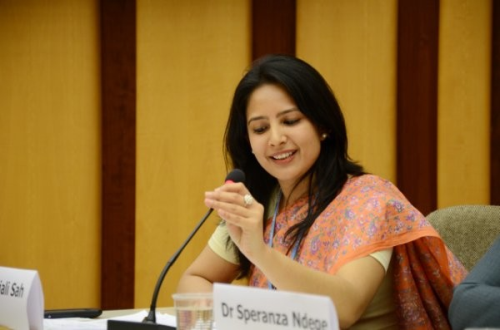
-
 C1. The role of governments and all stakeholders in the promotion of ICTs for development
C1. The role of governments and all stakeholders in the promotion of ICTs for development
-
 C2. Information and communication infrastructure
C2. Information and communication infrastructure
-
 C3. Access to information and knowledge
C3. Access to information and knowledge
-
 C4. Capacity building
C4. Capacity building
-
 C5. Building confidence and security in use of ICTs
C5. Building confidence and security in use of ICTs
-
 C6. Enabling environment
C6. Enabling environment
-
 C7. ICT applications: benefits in all aspects of life — E-government
C7. ICT applications: benefits in all aspects of life — E-government
-
 C7. ICT applications: benefits in all aspects of life — E-business
C7. ICT applications: benefits in all aspects of life — E-business
-
 C7. ICT applications: benefits in all aspects of life — E-learning
C7. ICT applications: benefits in all aspects of life — E-learning
-
 C7. ICT applications: benefits in all aspects of life — E-health
C7. ICT applications: benefits in all aspects of life — E-health
-
 C7. ICT applications: benefits in all aspects of life — E-employment
C7. ICT applications: benefits in all aspects of life — E-employment
-
 C7. ICT applications: benefits in all aspects of life — E-environment
C7. ICT applications: benefits in all aspects of life — E-environment
-
 C7. ICT applications: benefits in all aspects of life — E-agriculture
C7. ICT applications: benefits in all aspects of life — E-agriculture
-
 C7. ICT applications: benefits in all aspects of life — E-science
C7. ICT applications: benefits in all aspects of life — E-science
-
 C8. Cultural diversity and identity, linguistic diversity and local content
C8. Cultural diversity and identity, linguistic diversity and local content
-
 C9. Media
C9. Media
-
 C10. Ethical dimensions of the Information Society
C10. Ethical dimensions of the Information Society
-
 C11. International and regional cooperation
C11. International and regional cooperation
-
 Goal 1: End poverty in all its forms everywhere
Goal 1: End poverty in all its forms everywhere
-
 Goal 2: End hunger, achieve food security and improved nutrition and promote sustainable agriculture
Goal 2: End hunger, achieve food security and improved nutrition and promote sustainable agriculture
-
 Goal 3: Ensure healthy lives and promote well-being for all
Goal 3: Ensure healthy lives and promote well-being for all
-
 Goal 4: Ensure inclusive and equitable quality education and promote lifelong learning opportunities for all
Goal 4: Ensure inclusive and equitable quality education and promote lifelong learning opportunities for all
-
 Goal 5: Achieve gender equality and empower all women and girls
Goal 5: Achieve gender equality and empower all women and girls
-
 Goal 6: Ensure access to water and sanitation for all
Goal 6: Ensure access to water and sanitation for all
-
 Goal 7: Ensure access to affordable, reliable, sustainable and modern energy for all
Goal 7: Ensure access to affordable, reliable, sustainable and modern energy for all
-
 Goal 8: Promote inclusive and sustainable economic growth, employment and decent work for all
Goal 8: Promote inclusive and sustainable economic growth, employment and decent work for all
-
 Goal 9: Build resilient infrastructure, promote sustainable industrialization and foster innovation
Goal 9: Build resilient infrastructure, promote sustainable industrialization and foster innovation
-
 Goal 10: Reduce inequality within and among countries
Goal 10: Reduce inequality within and among countries
-
 Goal 11: Make cities inclusive, safe, resilient and sustainable
Goal 11: Make cities inclusive, safe, resilient and sustainable
-
 Goal 12: Ensure sustainable consumption and production patterns
Goal 12: Ensure sustainable consumption and production patterns
-
 Goal 13: Take urgent action to combat climate change and its impacts
Goal 13: Take urgent action to combat climate change and its impacts
-
 Goal 14: Conserve and sustainably use the oceans, seas and marine resources
Goal 14: Conserve and sustainably use the oceans, seas and marine resources
-
 Goal 15: Sustainably manage forests, combat desertification, halt and reverse land degradation, halt biodiversity loss
Goal 15: Sustainably manage forests, combat desertification, halt and reverse land degradation, halt biodiversity loss
-
 Goal 16: Promote just, peaceful and inclusive societies
Goal 16: Promote just, peaceful and inclusive societies
-
 Goal 17: Revitalize the global partnership for sustainable development
Goal 17: Revitalize the global partnership for sustainable development
